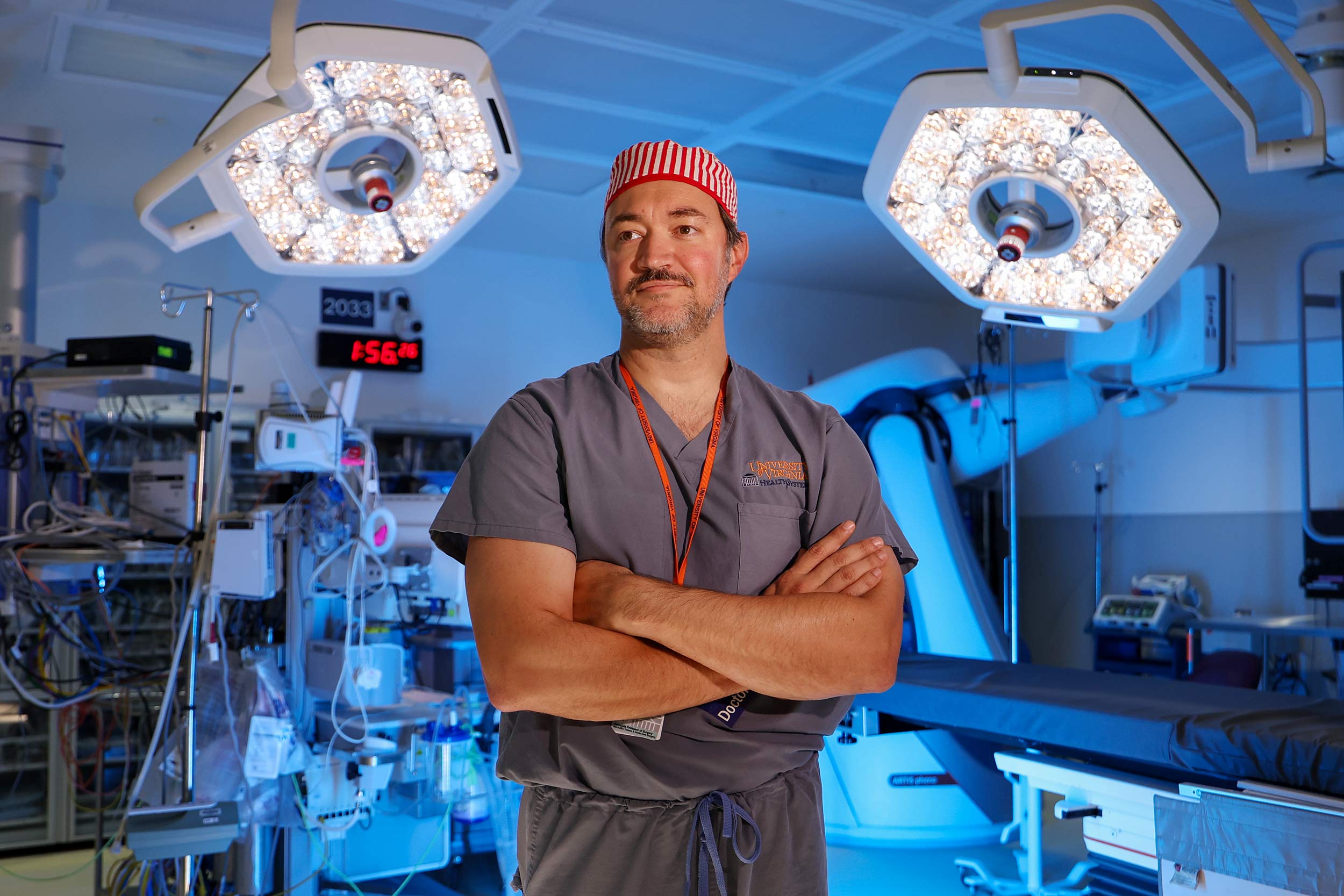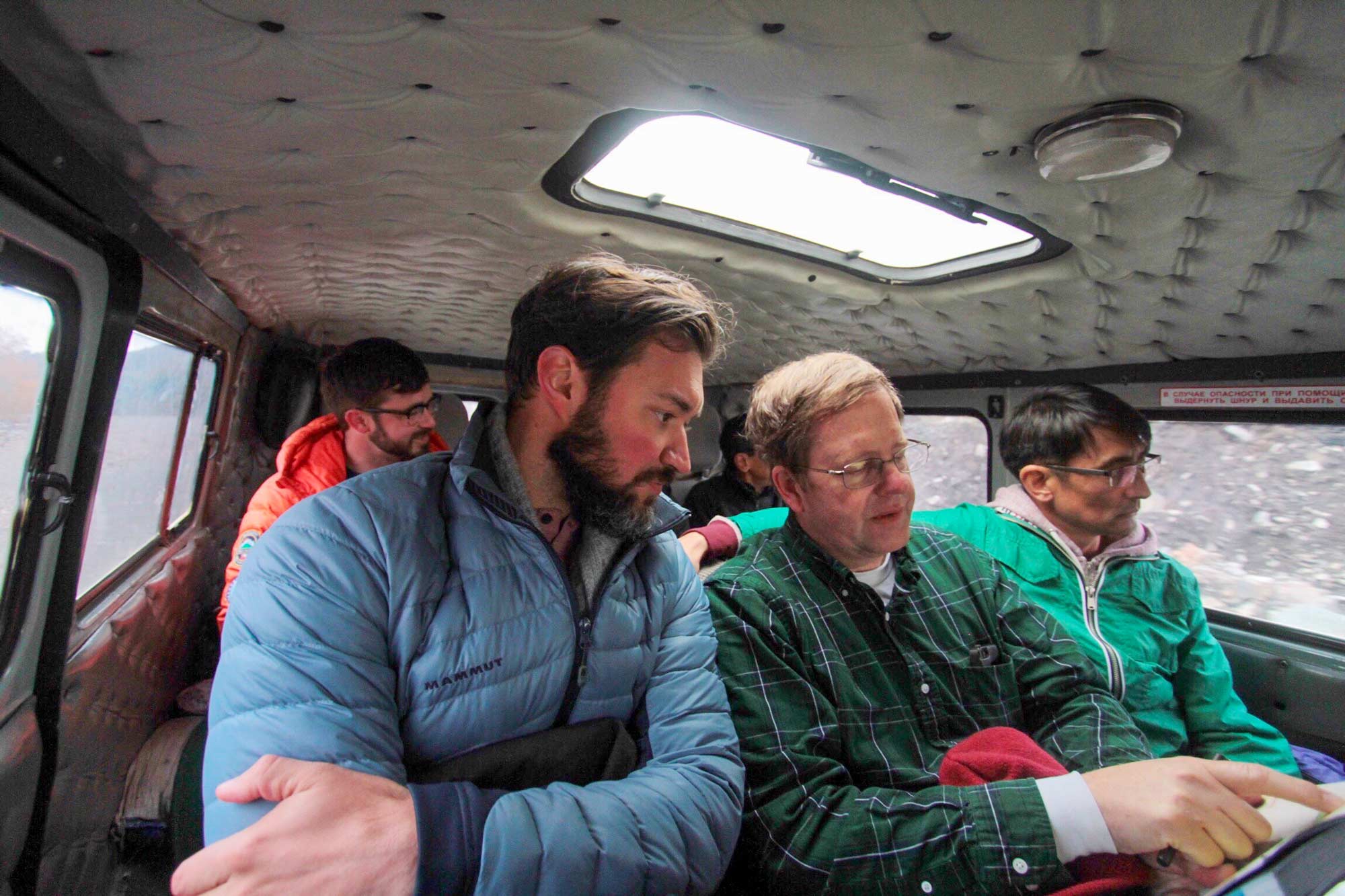The University of Virginia School of Medicine’s Department of Surgery has a new program for global surgery. Dr. Jade Nunez, who has been a surgeon at the University of Utah for a decade, moved to Charlottesville to co-direct the program and teach as an associate professor.
He spoke to UVA Today about the experience he brings with him and what he hopes to build.
Q. What do you do?
A. I’m an acute care surgeon, which encompasses trauma, emergency general surgery and surgical critical care. Throughout my training, I was drawn to global surgery, the idea of strengthening surgical systems in low- and middle-income countries. That led me to my first job at the University of Utah, one of the leaders in that field.
When most people picture surgeons working overseas, they think of short-term projects. I’m more focused on long-term partnerships and training models that help build capacity. The breadth of expertise across Grounds makes UVA an ideal place to foster those collaborations.











